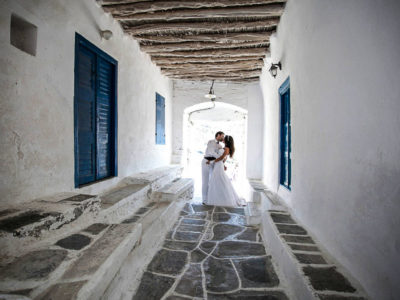wedding photography Cyprus
Wedding photography Cyprus. Wedding photography portfolio of a wedding day at Nicosia – Cyprus. As a Greek wedding and event photographer one of the places that I photograph at is of course Cyprus.
Cyprus is always considered to be as one of the top destinations worldwide for wedding photography, engagement photography, anniversary photography and wedding portraits photo session!
Several of the following wedding images have been awarded, published and distinct-ed.


























The Story
Philippos and Christia are Cypriots and got married at their homeland Nicosia.
It was a pleasure photographing their wedding!
That was a two days booking. On the first day the wedding took place and on the second day we visited an old neighborhood at Nicosia and Governors beach with the beautiful white rocks!
You can see some of the photographs at this small portfolio.
Grace Ormonde wedding style magazine featured their wedding … here is the link… https://weddingstylemagazine.com/galleries/christia-christou-philippos-oratis-gallery#24
We keep in touch with Filippos and Christia since then and I would like to send them my best thoughts and wishes!
Wedding photography Cyprus
Related Links
wedding photography portfolio at random order
Hotel Hilton
A few words about Cyprus
Etynology
The earliest attested reference to Cyprus is the 15th century BC Mycenaean Greek 𐀓𐀠𐀪𐀍, ku-pi-ri-jo,[38] meaning “Cypriot” (Greek: Κύπριος), written in Linear B syllabic script.[39] The classical Greek form of the name is Κύπρος (Kýpros).
The etymology of the name is unknown. Suggestions include:
- the Greek word for the Mediterranean cypress tree (Cupressus sempervirens), κυπάρισσος (kypárissos)
- the Greek name of the henna plant (Lawsonia alba), κύπρος (kýpros)
- an Eteocypriot word for copper. It has been suggested, for example, that it has roots in the Sumerian word for copper (zubar) or for bronze (kubar), from the large deposits of copper ore found on the island.[40]
Through overseas trade, the island has given its name to the Classical Latin word for copper through the phrase aes Cyprium, “metal of Cyprus”, later shortened to Cuprum.[40][41]
The standard demonym relating to Cyprus or its people or culture is Cypriot. The terms Cypriote and Cyprian are also used, though less frequently.
Wedding photography Cyprus / Wedding photographer Cyprus / Wedding photography Cyprus / Wedding photographer Cyprus / Wedding photography Cyprus
General info
Cyprus,[f] officially the Republic of Cyprus,[g] is an island country in the Eastern Mediterranean and the third largest and third most populous island in the Mediterranean. Cyprus is located south of Turkey, west of Syria and Lebanon, northwest of Israel, north of Egypt, and southeast of Greece.
The earliest known human activity on the island dates to around the 10th millennium BC. Archaeological remains from this period include the well-preserved Neolithic village of Khirokitia, and Cyprus is home to some of the oldest water wells in the world.[9] Cyprus was settled by Mycenaean Greeks in two waves in the 2nd millennium BC. As a strategic location in the Middle East, it was subsequently occupied by several major powers, including the empires of the Assyrians, Egyptians and Persians, from whom the island was seized in 333 BC by Alexander the Great. Subsequent rule by Ptolemaic Egypt, the Classical and Eastern Roman Empire, Arab caliphates for a short period, the French Lusignan dynasty and the Venetians, was followed by over three centuries of Ottoman rule between 1571 and 1878 (de jure until 1914).[10]
Cyprus was placed under British administration based on the Cyprus Convention in 1878 and was formally annexed by Britain in 1914. While Turkish Cypriots made up 18% of the population, the partition of Cyprus and creation of a Turkish state in the north became a policy of Turkish Cypriot leaders and Turkey in the 1950s. Turkish leaders for a period advocated the annexation of Cyprus to Turkey as Cyprus was considered an “extension of Anatolia” by them; while, since the 19th century,[11][12] the majority Greek Cypriot population and its Orthodox church had been pursuing union with Greece, which became a Greek national policy in the 1950s.[13] Following nationalist violence in the 1950s, Cyprus was granted independence in 1960.[14] In 1963, the 11-year intercommunal violence between Greek Cypriots and Turkish Cypriots started, which displaced more than 25,000 Turkish Cypriots[15][16] and brought the end of Turkish Cypriot representation in the republic. On 15 July 1974, a coup d’état was staged by Greek Cypriot nationalists[17][18] and elements of the Greek military junta[19] in an attempt at enosis, the incorporation of Cyprus into Greece. This action precipitated the Turkish invasion of Cyprus on 20 July,[20] which led to the capture of the present-day territory of Northern Cyprus in the following month, after a ceasefire collapsed, and the displacement of over 150,000 Greek Cypriots[21][22] and 50,000 Turkish Cypriots.[23] A separate Turkish Cypriot state in the north was established by unilateral declaration in 1983; the move was widely condemned by the international community, with Turkey alone recognizing the new state. These events and the resulting political situation are matters of a continuing dispute.




